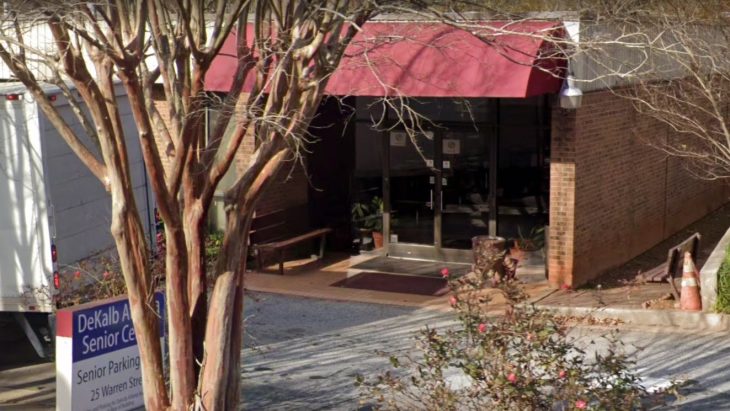DeKalb Community Service Board Kirkwood Mental Health

About DeKalb Community Service Board Kirkwood Mental Health
Claratel Behavioral Health is a behavioral health provider in Atlanta, Georgia. They offer compassionate treatment support for substance use disorders, mental issues, and co-occurring disorders. They primarily target underserved individuals by accepting Medicaid and Medicare. They even offer a sliding fee scale based on income and family size.
Defining Claratel
Claratel Behavioral Health has over 20 locations in DeKalb County, including the Claratel Kirkwood Clinic on Warren Street. They’re less than a mile from Memorial Drive SE and two miles south of DeKalb Avenue NE with easy access to downtown with access to local buses.
The facility sits at the heart of East Atlanta’s historic Kirkwood neighborhood and provides tailored support for residents dealing with mental health and co-occurring disorders. Services include therapy, psychiatric medication prescriptions and management, and peer support. Crisis intervention services are available for acute psychiatric and addictive symptoms. Almost all services are available via telehealth.
Therapy & MAT
Folks with primary substance use disorder may be referred to Claratel DeKalb Addiction Clinic or Claratel Fox Recovery Center. These facilities offer tailored addiction recovery. Services include individual and group therapy alongside psychosocial education to help you build sound coping skills, enhance self-awareness, and support lasting recovery. They also offer family therapy to strengthen your support network.
One recovery service you can receive here is opioid detox via medication-assisted treatment or MAT. This involves administering FDA-approved meds to help you curb physiological cravings and alleviate painful withdrawal symptoms. This is backed up with counseling to address underlying psychological issues and ensures lasting abstinence.
Their broader services encompass case management, which may include help with housing access, employment support, and educational assistance. The facility also offers specialized programs for men so they can transition into independence. Mobile crisis support is also available in emergencies.
| Levels of Care | Detox Service Setting | Programs | Payment Options | |
|---|---|---|---|---|
|
In outpatient therapy, you’ll attend therapy sessions several times each week while living at home. This is ideal if you have a strong support system and a lower risk of relapse. Outpatient treatment offers flexibility to maintain work, school or family obligations. |
Dual diagnosis programs address substance use disorders and co-occurring mental health conditions simultaneously. This integrated approach to care improves the likelihood of long term recovery and stability by addressing the root causes of addiction. |
|||
|
Outpatient detox gives you access to medically supervised withdrawal services while still allowing you to live at home. You’ll attend a clinic for treatment and monitoring. This flexible option is suitable for those with mild to moderate withdrawal symptoms who have strong support systems. |
||||
|
Adult programs address the substance use and life challenges specific to adults. Therapists can deliver sessions in individual, group and family settings. Services often include job support and life skills training in a structured environment. |
Alcohol detox programs offer medical support to help individuals withdraw safely from alcohol. Your care team may use medications to ease your symptoms and provide medical monitoring to address complications. |
Men's programs address substance use while also considering the social pressures, family roles and mental health concerns that are specific to men. You’ll learn healthy coping mechanisms as you build emotional resilience and develop communication skills. |
Women's programs offer a safe and supportive space to focus on gender specific issues such as trauma, family roles and mental health conditions. Therapists tailor the sessions to address women's needs and foster empowerment in a healing and nurturing environment. |
Young adult programs are designed for individuals who are transitioning into adulthood. Topics of discussion typically include identity, independence and peer relationships. Providers may also offer life skills training and career support. |
|
Medicaid
|
Medicare
|
Private Insurance
|
Self Pay
|
Levels of Care
In outpatient therapy, you’ll attend therapy sessions several times each week while living at home. This is ideal if you have a strong support system and a lower risk of relapse. Outpatient treatment offers flexibility to maintain work, school or family obligations.
Dual diagnosis programs address substance use disorders and co-occurring mental health conditions simultaneously. This integrated approach to care improves the likelihood of long term recovery and stability by addressing the root causes of addiction.
Detox Service Setting
Outpatient detox gives you access to medically supervised withdrawal services while still allowing you to live at home. You’ll attend a clinic for treatment and monitoring. This flexible option is suitable for those with mild to moderate withdrawal symptoms who have strong support systems.
Programs
Adult programs address the substance use and life challenges specific to adults. Therapists can deliver sessions in individual, group and family settings. Services often include job support and life skills training in a structured environment.
Alcohol detox programs offer medical support to help individuals withdraw safely from alcohol. Your care team may use medications to ease your symptoms and provide medical monitoring to address complications.
Men's programs address substance use while also considering the social pressures, family roles and mental health concerns that are specific to men. You’ll learn healthy coping mechanisms as you build emotional resilience and develop communication skills.
Women's programs offer a safe and supportive space to focus on gender specific issues such as trauma, family roles and mental health conditions. Therapists tailor the sessions to address women's needs and foster empowerment in a healing and nurturing environment.
Young adult programs are designed for individuals who are transitioning into adulthood. Topics of discussion typically include identity, independence and peer relationships. Providers may also offer life skills training and career support.
Accreditations
Contact

Chika Uchendu is a multi-niche and seasoned SEO writer with expertise in personal finance, technology and health. He’s had over 10 years of experience creating impactful content that resonates with diverse audiences. His journalism and digital marketing background enables him to combine data-driven analysis with engaging storytelling. This helps drive engagement and grants target audiences access to valuable information.
Chika has worked for Benzinga, Motley Fool, Webopedia and many other popular online media outlets on a freelance and contractual basis. He is using his voice to drive awareness and meaningful change among people dealing with the pandemic of substance use disorder. Chika is an ambivert who enjoys sports, hiking, reading and video gaming.

Peter W.Y. Lee is a historian with a focus in American Cold War culture. He has examined how popular culture has served as a coping mechanism for the challenges and changes impacting American society throughout the twentieth century.




